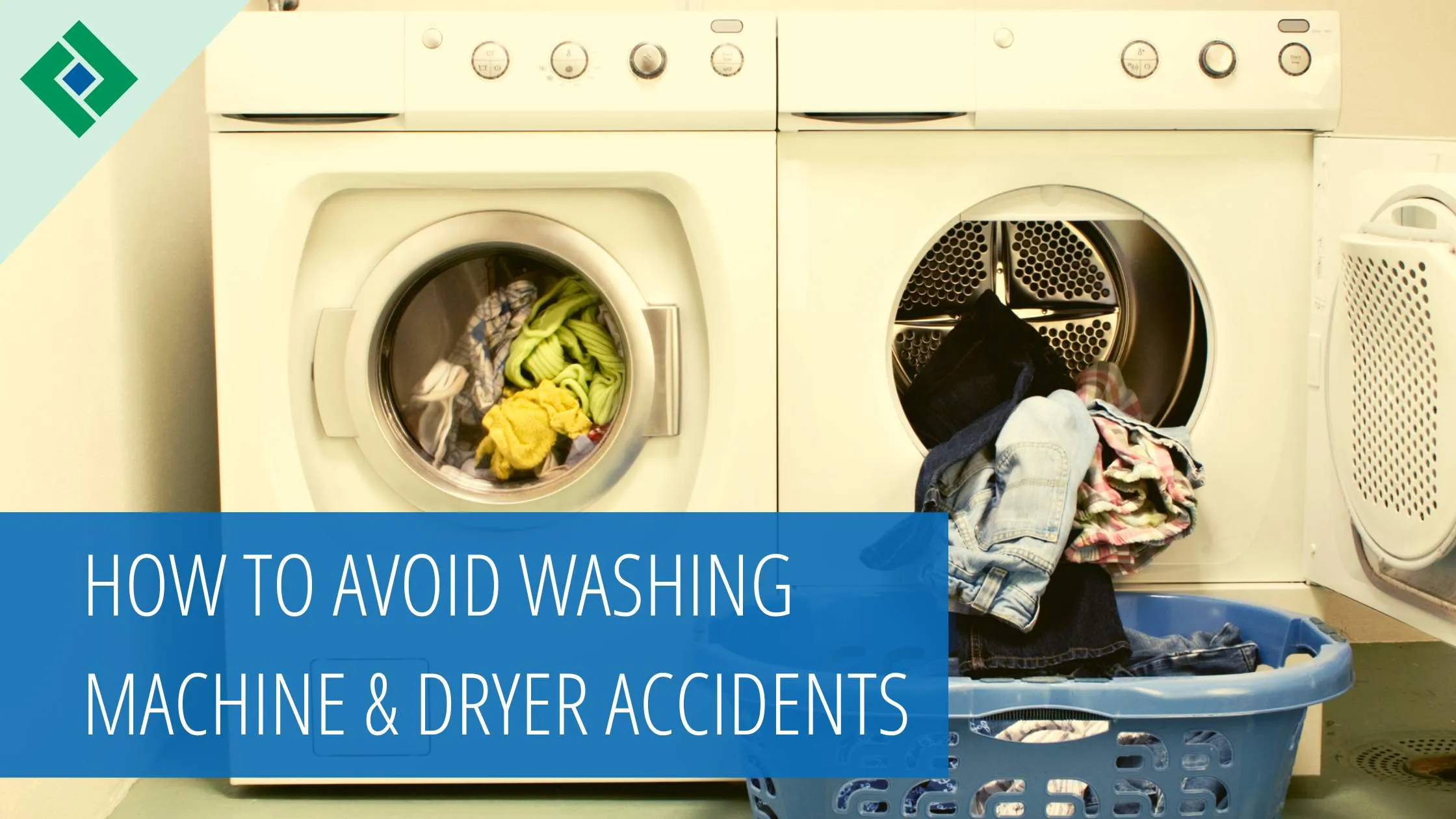How to Avoid Washing Machine & Dryer Accidents

The laundry room – and your washing machine and clothes dryer, specifically – make it possible to have warm, clean clothes any time you like, 24/7. But, like other major appliances in your home, hefty household machinery like these come with serious risks.
Neglect, inappropriate use, equipment malfunction, and sheer bad luck could all result in disaster for you, your family, and your home. Water damage and house fires are the biggest concerns surrounding your washer and dryer. Because of this, it's well worth your time to become familiar with common washer & dryer problems resulting in water damage or fire – and how to make sure this doesn’t happen to you.
5 Common Washer & Dryer Problems & Solutions
While washer & dryer problems may be common, taking whatever steps are necessary to help prevent these problems could mean avoiding a house fire or water damage in the home, along with costly clean up and repairs.
Problem 1: Water in the washing machine’s tub overflows, coming out the top or front.
Solution: A clogged drain at the base of the tub is a common cause of this. Not only can it cause water to overflow the tub, but it can cause the entire machine to overheat, posing a fire risk as well. Other causes of an overflow include a faulty valve, pump, or water level switch. Using too much detergent can also do it.
To avoid this problem:
• Remove small items from clothing pockets before washing
• Put very small items of clothing into a larger mesh bag for washing
• Don’t overload the machine
• Regularly inspect the fill and drain hoses and the tub drain
• Consider having the unit serviced periodically (e.g., hoses may need to be replaced every 3-5 years)
• Use detergent according to instructions – concentration levels have changed in recent years, so much less detergent is needed per wash
Problem 2: Water leaks from behind or under the washing machine.
Solution: A leak in either the fill or drain hoses is a common cause of a leaking washing machine. The hoses don’t have to be frayed to cause leaking, either – if any part of the hose is squeezed shut, or if it becomes disconnected, it can result in serious water leakage during a cycle.
To avoid this problem:
• Check the hoses for wear and tear, and replace them as needed
• Replace rubber hoses with braided stainless steel hoses for durability
• Look for signs of water around the washer before and after each use
• Install a washer drip pan
Problem 3: The dryer doesn’t completely dry our clothes.
Solution: By far, the biggest reason for this is failure to remove lint from the dryer and dryer vents. Failure to regularly remove lint is also the leading cause of dryer fires, according to the National Fire Protection Association.
To avoid this problem:
• Remove lint from the filter after every cycle
• Arrange for annual dryer vent cleaning, which should include removal of lint and debris at the dryer unit itself and from the other end of the dryer vent (typically on the roof or the side of the house)
Problem 4: The dryer appears to overheat.
Solution: Airflow issues tend to be behind an overheating clothes dryer. When hot air cannot escape from inside the dryer, it can quickly raise the temperature and lint or clothing particles may catch fire. In addition to venting problems, malfunction or wear and tear of dryer components – such as the thermostat, heating element, or drum seal – may also be behind an overheating dryer.
To avoid this problem:
• Don’t overload the dryer
• Ensure the dryer vent is unclogged, and the venting is not pinched, kinked, or otherwise blocked; regular dryer vent cleaning can help
• Schedule maintenance for the unit if it continues to overheat
Problem 5: The washing machine/dryer is acting strange.
Solution: If you notice anything unusual about your washing machine or clothes dryer – such as odd smells, sounds, or the way it operates – it could be a sign of a variety of washer & dryer problems. For example, a loud thumping noise or severe shaking of the washer when in use could mean it has become unbalanced, either due to an unevenly distributed load in the tub or mechanical issues, such as worn suspension springs, bearings, or other moving parts. Faulty wiring, an electrical short circuit, and malfunctioning components could also be to blame. In some cases, these problems could result in a risk of electrical shock and fire.
To avoid this problem:
• Turn off the machine and consult a qualified repair professional
• Don’t use extension cords for either machine; both should plug directly into a dedicated wall socket
• Use only a qualified technician to install the units
• Regularly clean and inspect both machines
Proper Use of Your Washer & Dryer Can Prevent Flooding & Fire
Washer & dryer problems, while immediately disruptive, can also lead to serious home-destroying and life-threatening fire as well as water damage in the home. While these appliances are certainly convenient, it is every homeowner’s responsibility to care for them appropriately to avoid potential danger.
At Florida Peninsula Insurance Company, one of Florida's largest homeowner’s insurance companies and operating in the state since 2005, it is our goal to help you protect your home for the long term. We offer a range of coverage options, including standard homeowner’s insurance, to additional options, such as coverage for equipment breakdown repairs – like washer & dryer problems.
To find out more, call your Florida Peninsula agent or get an online quote now.

